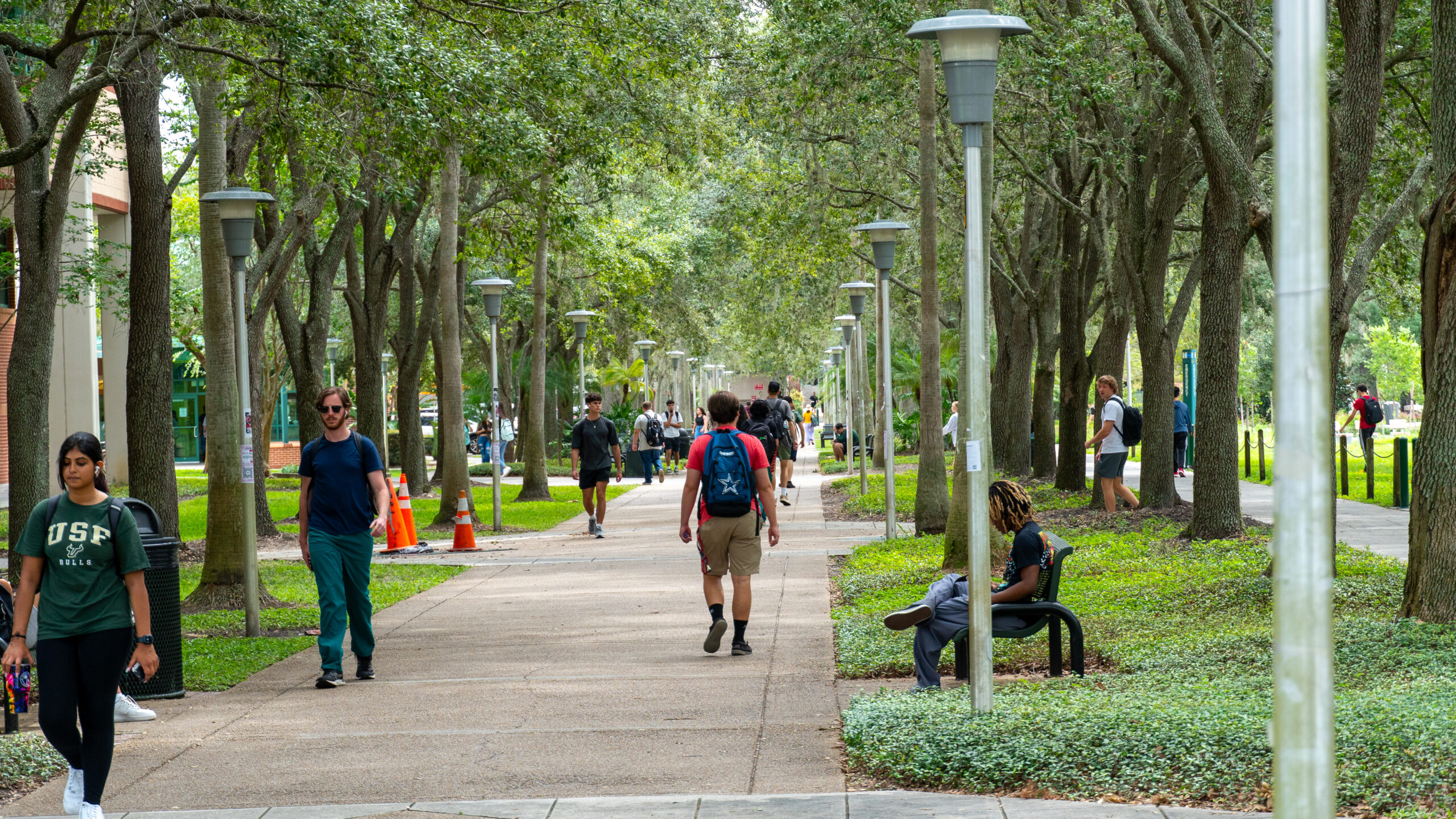Here’s how these USF multicultural clubs are preparing for potential funding cuts

Eric Torres, president of the Association of Latin Professionals for America (ALPFA) and junior personal financial planning major, said a proposed regulation targeting diversity, equity and inclusion (DEI) could have a huge impact on student organizations.
Torres said it could impact groups’ funding, which is essential to running any group on campus.
“Without the funding, it will be difficult to market and provide better quality events for our members,” Torres said. “It will impact the number of people interested in the organization due to the lack of incentives such as food or merchandise.”
The Florida Board of Governors (BOG) advanced a rule on Nov. 9 based on Senate Bill 266 that would prohibit state universities from expending funds to promote, support or maintain any campus activities, programs and organizations that advocate for DEI.
Related: USF students oppose proposal to remove sociology as general education requirement
The regulation defined DEI as “any program, campus activity or policy that classifies individuals on the basis of race, color, sex, national origin, gender identity or sexual orientation.”
A university organization advocates for DEI when it promotes differential or preferential treatment of individuals on the basis of such classification to increase outcomes, participation or representation as compared to other groups, according to the regulation.
The proposal has left some student organizations concerned about funding allocations, leading them to formulate backup plans in case the rule is approved.
A university spokesperson said in a statement that USF continues to monitor the progress of the regulation proposed by the BOG.
If the regulation is approved, USF will work with its partners across the State University System and the BOG to analyze how the university will be impacted, according to the spokesperson.
Related: Florida’s new proposed regulation threatens free speech on college campuses, students say
Giovanna Pecin, president of the Latino Medical Student Association (LMSA+) and junior biomedical sciences major, said she doesn’t understand why the regulation would be approved when Florida is one of the most diverse states in the country.
“I can’t even count how many organizations there are at USF that represent different cultural backgrounds,” Pecin said. “They have plenty of resources to help students, and I don’t think that should ever be taken away from them.”
Pecin said that her organization, LMSA+, has always had some extra money in their savings in case something happened. The organization’s board might soon have to consider other backup plans if the regulation gets approved, according to Pecin.
Some alternatives would be to throw fundraising events and look for donations through professional chapters, which include people who have established careers and support DEI initiatives, according to Torres.
Student organizations have the option to apply for annual budgets or interim funding, according to the Student Government Business Service webpage.
Annual budgets are funded through the Activity and Service (A&S) fee. Every student pays this $7 flat fee and $12.08 per credit hour every semester.
The interim funding process allows student organizations to request money at any point during the current academic year.
Student Government (SG), through the annual and interim process, allocates funding to student organizations based on standards created by SG.
Nikhita Athipathy, president of the Pre-health Association of Minority Students (PHAMS) and junior biomedical sciences major, said student organizations should use the regulation as motivation to expand their reach and spread DEI awareness to even more students.
“DEI initiatives were implemented very recently, and it was great to see that people were finally realizing that it was necessary for students’ success,” Athipathy said. “It is very disheartening to see that we’re moving backward in terms of getting more diversity.”
It is important to look at the indirect consequences of the regulation, according to Athipathy. Athipathy said it could affect how people see some organizations on campus by increasing the stigma associated with clubs that are specifically directed toward minority communities.
Pecin said she wished she knew about the proposed regulation in advance because student organizations could have helped by submitting statements to the BOG’s website.
The public had two weeks to comment on the regulation through the board’s website. The window closed last Thursday.
The rule is expected to come before the board for final approval in January.
Related: Trans students fear new USF bathroom rule: ‘Treated as a whole different species’
Torres said he disagrees with the regulation because he thinks there needs to be equal opportunity and fairness for different diverse and minority groups.
“More people should better understand the initiative of DEI, which is a powerful tool that all students can benefit from,” Torres said. “It provides students with many perspectives from different races, ethnicities and identifications, and understanding different cultures is a valuable experience.”
Pecin said her organization will stick to its roots and keep helping international students pursue a medical career even if the regulation gets approved.
“The regulation is going to limit us, not stop us,” Pecin said. “We have plenty of access to social media where we can keep raising awareness, and we won’t stop having our events even if there’s no food.”







